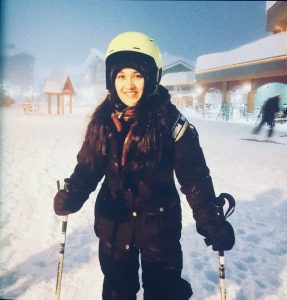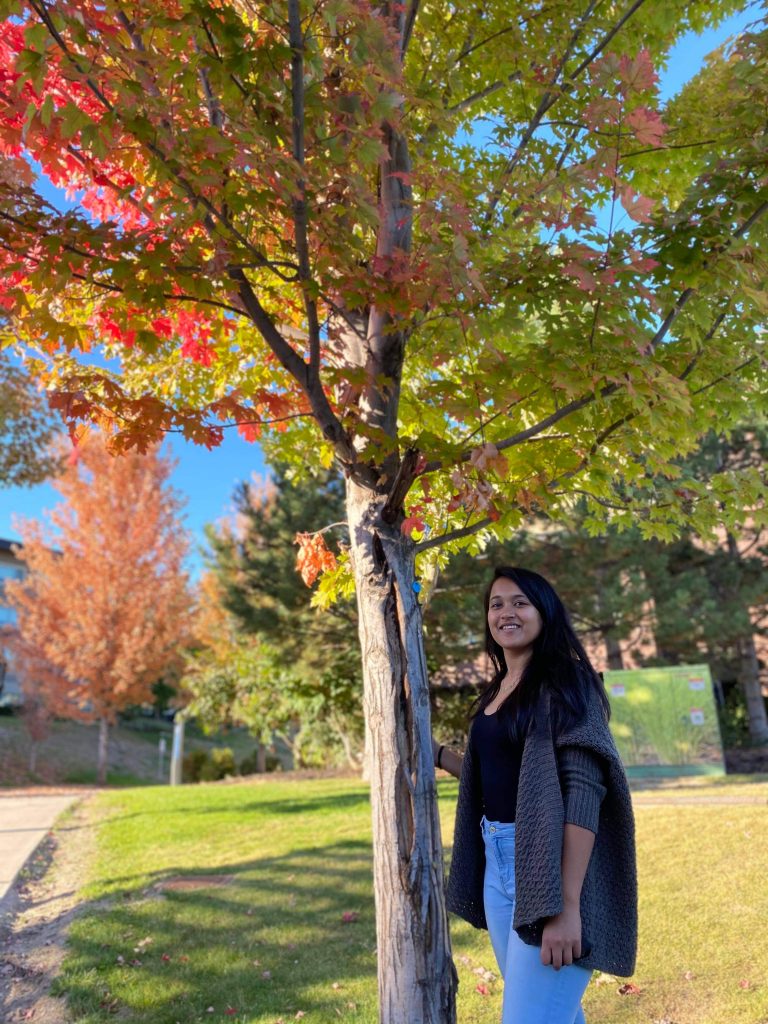Shriya Agrawal is an international student from Dar Es Salaam Tanzania who is in her fourth year of the Mechanical Engineering program.

What inspired you to go into engineering?
I am fascinated by how things work, and how something can always be made better by revising the smallest details. Innovation in design, for the purpose of increased sustainability, and exploration of the unknown, is something I believe in striving towards.
Why did you choose UBC Okanagan?
I chose the UBC Okanagan campus for its close-knit, accepting community and the various opportunities for personal growth that it has to offer, while getting time to discover myself in the peaceful quiet of the Okanagan.
Favourite courses(s)/instructor(s) during your time at UBC Okanagan?
APSC 171 (Engineering Drawing and Design CAD/CAM): Dr Ray Taheri, APSC 259 (Materials Sciences): Dr. Lukas Bichler, ENGR 310 (Fluid Mechanics): Dr. Joshua Brinkerhoff, ENGR 377 (Manufacturing Engineering): Dr. Dimitry Sediako, ENGR 375 (Energy Systems Design): Dr. Mina Hoorfar, ENGR 315 (Systems and Control): Dr. Houmayoun Najjaran, ENGR 387 (Vibrations): Dr. Hadi Mohammadi, are some of my most favorite courses in engineering so far. The teaching approach of the instructors, as well as the mix between application and theoretical knowledge in all of these courses, made the courses thought-provoking and fun.

What extra-curricular activities have you been involved with?
I have tried to stay involved in extracurricular activities throughout my time at university. These activities have ranged from helping plan/volunteering at events such as Harmony, Reading Week and Orientation programs such as Jumpstart and Create, to being a peer mentor for incoming first year engineers, as well as working in an engineering research lab, and being administratively involved in clubs such as the Engineering Society and TEDxUBCO.
What does the future hold for you?
For the most part, as an overview, my research was primarily focused on the processing and recycling of waste from the carbon industry, and the application of the acquired products into the aerospace and materials science industries. This is an important step towards achieving sustainability, which means not only preserving what we have but also recycling the wastes we have already created in the environment, as there will always be, by the looks of it, some extent of waste production generated, and as the next generation of engineers it falls upon us to recognize that and find innovative ways of reducing its ecological impacts.
I’m looking forward to getting a Master’s degree in engineering in the near future, preferably after working in industry and gaining some insight into the professional life of an engineer, considering that I can find a suitable position upon graduation. Eventually, I aim to work in the industrial research sector at a later stage in life.
